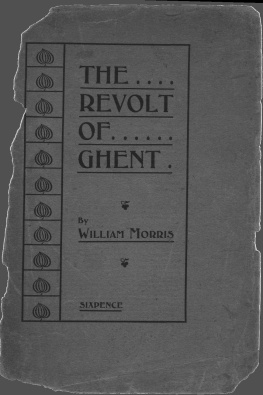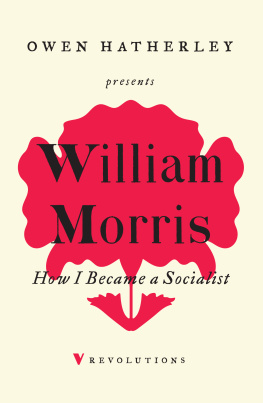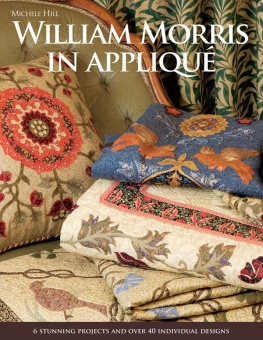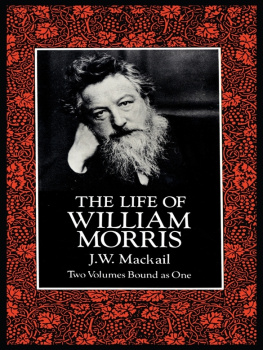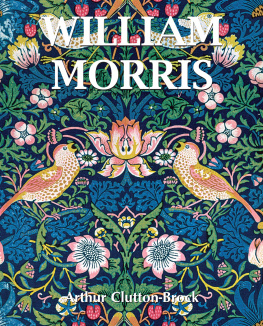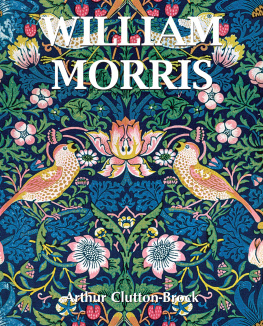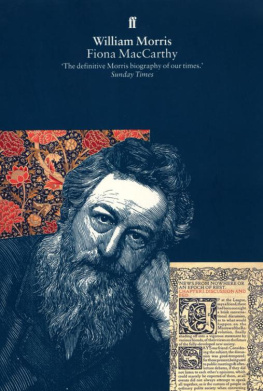William Morris - The Revolt of Ghent
Here you can read online William Morris - The Revolt of Ghent full text of the book (entire story) in english for free. Download pdf and epub, get meaning, cover and reviews about this ebook. publisher: Marxists Internet Archive, genre: Art. Description of the work, (preface) as well as reviews are available. Best literature library LitArk.com created for fans of good reading and offers a wide selection of genres:
Romance novel
Science fiction
Adventure
Detective
Science
History
Home and family
Prose
Art
Politics
Computer
Non-fiction
Religion
Business
Children
Humor
Choose a favorite category and find really read worthwhile books. Enjoy immersion in the world of imagination, feel the emotions of the characters or learn something new for yourself, make an fascinating discovery.
- Book:The Revolt of Ghent
- Author:
- Publisher:Marxists Internet Archive
- Genre:
- Rating:5 / 5
- Favourites:Add to favourites
- Your mark:
- 100
- 1
- 2
- 3
- 4
- 5
The Revolt of Ghent: summary, description and annotation
We offer to read an annotation, description, summary or preface (depends on what the author of the book "The Revolt of Ghent" wrote himself). If you haven't found the necessary information about the book — write in the comments, we will try to find it.
The Revolt of Ghent — read online for free the complete book (whole text) full work
Below is the text of the book, divided by pages. System saving the place of the last page read, allows you to conveniently read the book "The Revolt of Ghent" online for free, without having to search again every time where you left off. Put a bookmark, and you can go to the page where you finished reading at any time.
Font size:
Interval:
Bookmark:
T HE events of which an account is here given took place towards the close of the fourteenth century amongst a people of kindred blood to ourselves, dwelling not many hours journey (as we travel now) from the place where we dwell; and yet to us are wonderful enough, if we think of them.
Few epochs of history, indeed, are more interesting than this defeatedstruggle to be free of the craftsmen of Flanders whether we look upon thestory as a mere story, a true tale, of the Middle Ages at their fullestdevelopment, rife with all the peculiarities of the period, exemplifying theirmanners and customs, the forms that their industry, their religion, theirheroism took at the time; or whether we look upon it, as we Socialists cannothelp doing, as a link in the great chain of the evolution of society, anincident, full of instruction, in the class struggle which we have nowrecognised as the one living fact in the world, since civilisation began, andwhich will only end when civilisation has been transformed into somethingelse. Whether we look upon the Revolt of Ghent as a story of the past or as a part of our own lives and the battle which is not wasting, but, using them, it is one of the great tales of the world.
One piece of good fortune also it has, is that, as Horace says, it has notlacked a sacred poet. As the tale is here told, its incidents, often the verywords of them, are taken from the writings of one of those men who make pasttimes live before our eyes for ever. John Froissart, canon of Chimay inHainault, was indeed but a hanger-on of the aristocracy : he was in such aposition as would have prevented him on principle from admitting any goodqualities whatever in those people whom he was helping to oppress; butclass-lying was not the fine art which it has since become; and the simplerhabits of thought of Froissarts days gave people intense delight in thestories of deeds done, and developed in them what has been called epicimpartiality: added to which one domain for the cultivation of historical lieswas not available in the Middle Ages, since owing to the form feudal societyhad then taken what we now call patriotismi.e., national envyand rancourdid not exist. Englishmen, Scotchmen, Fleming, Spaniard,Frenchmen, Gascon, Breton, are treated by John Froissart as men capable ofvaliancy, their deeds to told of and listened to with little comment of blameor discrimination : and I think you will say before you have done with him thathe could even see the good side of the revolutionary characters of his time,so long as they were not slack in noble deeds. The result of a low standard ofmorals, you will say. Maybe; and indeed I have noticed that a would-be highstandard of morality is sometimes pretty fertile of lying, because it is soanxious that every event should square itself to an a priori theory.However that may be, there is the general epic impartiality of the medivalchronicler amidst all his mistakes and misconceptions.
Now a word or two as to the political and social condition of Flanders inthe fourteenth century, and then without more to do I will get to my story andintroduce you to John Froissart, who has given me at least as muchpleasure as he did to any one of the lords, ladies, knights, squires andsergeants who first heard him read.
First very briefly as to the political position of the country. Lying as itdid between the growing monarchy or rather suzerainty of France and thedisjointed members of the Holy Roman empire, it was with theformer power that it had to deal. The rise of the great cities of Flanders andHainault, and the power they could not fail to acquire, made the feudal lordof the country but a weak potentate, and he always had a tendency to lean onFrance for support. The French king, on his part was ambitious of making theEarl of Flanders his vassal, and the help he gave him against his rebellioussubjects had to be paid for by homage to the French Suzerainty, or at least bypromises of homage. France therefore was distinctly the enemy of the Flemishpeople, though it was, when occasion served, the friend of the Flemish feudallord. France could also strike a blow at the prosperity of the country withouteven putting an army in the field, by forbidding the export of wool, the greatnecessity to the woollen-weaving which was the main industry of Flanders, andthis was done on several occasions.
Therefore it was natural for the leaders of the Flemish people to turntowards England as a support, both because there was a standing quarrelbetween the feudal lords of England and France, and because England was thewool-producing country of Europe. On the other hand, to an English king with aquarrel on hand with a French one, the advantage of the Flemish alliance wasobvious enough and accordingly at the beginning of the great feudal warbetween England and France we find our King Edward III. in firm alliance withJames van Artevelde, the leader of the Flemish people, or rather bourgeoisie,treaties made between them as to the free passage of wool, and Queen Philippa,godmother to the enfant child of the great Bourgeois, while the Earl ofFlanders was hanging about the French Court a disinherited lord.
Now, as to the social condition of the Flemings. Manufacturing byhandicraft pure and simple, without division of labour, was carried by themabout as far as it could go ; and the gild-system was fully developed there,accompanied by a complete municipal system, democratic and social as far asmatters within the association were concerned, though exclusive as regardedoutsiders. The great towns of northern Europe, it must be remembered, were notoriginally cities, sovereign bodies with a definite politylike those of the ancient classical world. The origin of them was theagricultural district, the land that gave subsistence to the clan, all thefree men of which took part in the affairs of the community ; the first townswere not as in Greece and Rome, the sacred spots of the tribal ancestor, butpallisaded places where convenience had made the population thicker than inother parts of the district. These as they grew kept their territory anddeveloped at last within themselves an aristocratic and oligarchicgovernment.
But as these towns changed from being mere centres of an agriculturalpopulation, into being places of resort for handicraftsmen and merchants, andas the associations for the organisation of industry, that is the gilds, grewup amongst the former, a new democratic feeling rose up which opposed itselfto the remains of the old tribal freemen, now become a mere exclusiveoligarchy, who considered the practice of handicraft a disgrace.
The new democracy triumphed at last, and by the end of the thirteenthcentury the gilds, the actual workmen, were the masters of the great towns;under the feudal lords, however, to whom they owned fealty.
Within the gilds themselves there could be no capitalists or great men,because the rules of the gilds were framed to prevent the accumulation ofwealth in the hands of a few, the masters were master workers, and were keptso by the rules aforesaid.
I suspect, however, that there were remains of the old municipal,aristocracy (the lineages, as they were called in Flanders) still in existencein the towns, otherwise it would not be easy to account for the masterfulposition of James van Artevelde, and others whom we shall meet with later onin our story, who were certainly both wealthy and of importance, apart fromany office they might happen to hold.
In Ghent also and elsewhere, notably at Bruges its rival, an aristocracy ofthe crafts was forming, as is apparent in the fact of the jealousy between,the greater and the lesser crafts, so that if the development of commerce joined with therise of bureaucratic monarchy had not supervened and swept away the power andfreedom of the towns altogether, the struggle between the municipalaristocracy and the craftsmen would have been repeated in the fifteenthcentury in another form.
Next pageFont size:
Interval:
Bookmark:
Similar books «The Revolt of Ghent»
Look at similar books to The Revolt of Ghent. We have selected literature similar in name and meaning in the hope of providing readers with more options to find new, interesting, not yet read works.
Discussion, reviews of the book The Revolt of Ghent and just readers' own opinions. Leave your comments, write what you think about the work, its meaning or the main characters. Specify what exactly you liked and what you didn't like, and why you think so.

